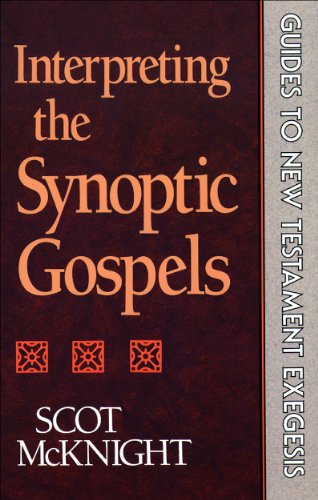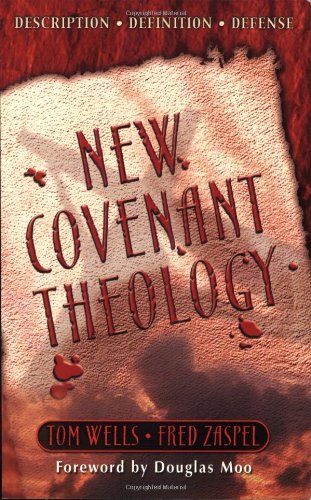Quotes about Covenant-New
In Jeremiah’s prophecy of the new covenant, Jeremiah explicitly says, “It will not be like the covenant I made with their forefathers, when I led them by the hand out of Egypt” (Jer. 31:32). How will it be different? For one thing, it will be unbreakable (v. 32). For another, all the members of that covenant will be regenerate, the law written on their hearts (v. 33). Yet another difference will be that the covenant will not operate according to natural lines of birth and descent, but through spiritual birth (vv. 29-30). Here the discontinuity between the new covenant and the Mosaic covenant is enormous: a covenant of grace, not works; a covenant that regenerates rather than kills; a covenant entered into through spiritual rather than natural birth. And yet for all this discontinuity, Jeremiah is clear that this new covenant is the ultimate fulfillment of God’s promises to Israel, made to their forefather Abraham.
Biblical Theology Tools 2 by Michael Lawrence taken from Biblical Theology by Michael Lawrence, copyright 2010, Crossway Books, a division of Good News Publishers, Wheaton Illinois 60187, www.crosswaybooks.org. Page 81.
What is the New Covenant then? It is the unilateral, irrevocable, unchangeable, eternal promise by God that He will save sinners by forgiving their transgressions and regenerating them from the inside to love Him and obey Him… The New Covenant embodies grace and peace and the Holy Spirit and regeneration and the knowledge of God and the forgiveness of sin and a new heart and pure fellowship with God and love for God. This covenant was personal and individual.
Connecting the Covenantal Dots, Part 2. The article originally appeared (www.gty.org/library/sermons-library/90-434/connecting-the-covenantal-dots-part-2) at www.gty.org. © 1969-2008. Grace to You. All rights reserved. Used by Permission.
The church is the new covenant community – “This cup is the new covenant in my blood” (Luke 22:20; 1 Corinthians 11:25) – we say when we take communion. The new covenant is the spiritual work of God to put His Spirit within us, write the law on our hearts, and cause us to walk in His statutes. It is a spiritually authentic community. Unlike the old covenant community it is defined by true spiritual life and faith. Having these things is what it means to belong to the Church. Therefore to give the sign of the covenant, baptism, to those who are merely children of the flesh and who give no evidence of new birth or the presence of the Spirit or the law written on their heart or of vital faith in Christ is to contradict the meaning of the new covenant community and to go backwards in redemptive history.
How Do Circumcision and Baptism Correspond? Copyright (1999), John Piper. Used by permission. www.DesiringGod.org.
When the law was written on tablets of stone, there was a significant weakness. The weakness of the Old Covenant was not in the law. The weakness of the Old Covenant was the people’s hearts. They couldn’t keep the law because they lacked two basic ingredients. Both of them interestingly were mentioned in the Old Testament when God used His prophets to speak while under the Old Covenant of the coming New Covenant. First, as God said through Jeremiah, “I will put My law within them and on their heart I will write it” (Jer. 31:34). The writing of the law went from tablets of stone to tablets of human hearts (2 Cor. 3:3). And second, as God said through Ezekiel, “I will put My Spirit within you and cause you to walk in My statutes, and you will be careful to observe My ordinances” (Eze. 36:27). We by far have greater power to obey the law with the fullness of the Holy Spirit dwelling within us as God says, “causing” us to obey. So there should be a radical difference between us and Israel. It’s not in the God we serve. It’s not in the desire to obey Him. It’s not in the faith of a Messiah to take away our sins. It’s not in a law that is given from God to be obeyed. It’s not even in a delight in that law. The difference is simply this. The Old Covenant is characterized by people who were stiff-necked and rebellious (Dt. 9:6; 10:16; 31:27), whereas the New Covenant is characterized by people who have soft hearts and the ability to obey.
With the arrival of Jesus Christ came the New Covenant. He told His disciples during the Last Supper, “This cup which is poured out for you is the new covenant in My blood” (Lk. 22:20). And the Lord made the arrival of the New Covenant dramatically clear when the veil in the Temple was torn from top to bottom after Jesus died on the cross (Mt. 27:51). This event signified the fact that the whole old system had ended and a new covenant had dawned. The Holy Place was now exposed, and redeemed sinners by the blood of Christ (not the blood of animals) were given open and direct access to the throne of God (Heb. 4:16). And to make it unmistakably clear, God permitted the Temple to be destroyed in AD 70 to put an end to all animal sacrifices now that the shadows of animal sacrifices have given way to the substance; the one-and-for-all blood sacrifice of Jesus Christ (Heb. 9:12).
What is [special about] the New Covenant (Jer. 31:31-34; Ezek. 36:25-28)? 1. Internalization of God’s law (“I will put My law within them, and on their heart I will write it” Jer. 31:33a). 2. Unbroken fellowship with God (“I will be their God, and they shall be My people” Jer. 31:33b). 3. Unmediated knowledge of God (“And they shall not teach again, each man his neighbor and each man his brother, saying ‘Know the Lord,’ for they shall all know Me, from the least of them to the greatest of them” Jer. 33:34a). 4. Unconditional forgiveness of sins (“for I will forgive their iniquity, and their sin I will remember no more” Jer. 33:34b).
In whom is the New Covenant fulfilled? [Several suggestions] have been given (one’s decision on this question will be determined by the interpretation of Luke 22:20 (Mt. 26:28; Mark 14:24); 1 Cor. 11:25; 2 Cor. 3:6; Hebrews 8:6-13; 9:15; 10:15; 10:19ff.). 1. The New Covenant was given exclusively for ethnic Israel and will therefore be fulfilled only in her at the end of the age when Israel as a nation is saved. The Church has no part in the blessings of this covenant. 2. There are two New Covenants, one for ethnic Israel and one for the Church. 3. There is only one New Covenant, for Israel, in which the Church shares spiritually. I.e., those blessings in the covenant which pertain to salvation are equally enjoyed by the Church, but those that pertain to earthly prominence in the land belong solely to Israel. 4. There is only one New Covenant. The Church, being the historical continuation of the believing remnant within Israel, is the recipient of its blessings. Thus, both believing Jews and believing Gentiles, the latter of whom have been graciously included in the covenants of promise (Eph. 2:12), together and equally enjoy the fulfillment of all aspects of the New Covenant. According to this view, there is a biblical expectation of a mass salvation among the Jewish people who will then be incorporated into the Church, the body of Christ. 5. There is only one New Covenant, of which the Church, which has replaced Israel in the purposes of God, is the recipient. This is commonly referred to as Replacement Theology. According to this view, there is no biblical expectation of a mass salvation among the Jewish people. 6. here are two covenants, one for the Jewish people and one for those (whether Jew or Gentile) who embrace Jesus as Messiah. The latter comprise the Church. The former are Jews who need not believe that Jesus is the Messiah but who relate savingly to God via Judaism.
In contrast [to the Old Covenant], the New Covenant has a spiritual means of entrance: one must believe and be saved (Acts 16:31). Therefore, one’s spiritual life is closely connected to the sign of baptism. If baptism indicates an entrance into the New Covenant, then only those devoted to God and trusting in Jesus should be baptized. True circumcision, as Paul preaches in Romans 2:29, is that of the heart, and it is accomplished by the Spirit. In other words, a person today enters a covenant relationship with God not based on a physical act but on the Spirit’s work in the heart.
Is baptism the New Covenant equivalent of circumcision? www.GotQuestions.org. Used by Permission.
Someone born (physically) under the Old Covenant received the sign of that covenant (circumcision); likewise, someone born (spiritually) under the New Covenant (“born again,” John 3:3) receives the sign of that covenant (baptism).
Is baptism the New Covenant equivalent of circumcision? www.GotQuestions.org. Used by Permission.
The New Covenant is the bond between God and man, established by the sacrificial death of Jesus Christ, under which all who have been effectively called to God in all ages have been formed into the one body of Christ in New Testament times, in order to come under His law during this age and to remain under His authority forever.








